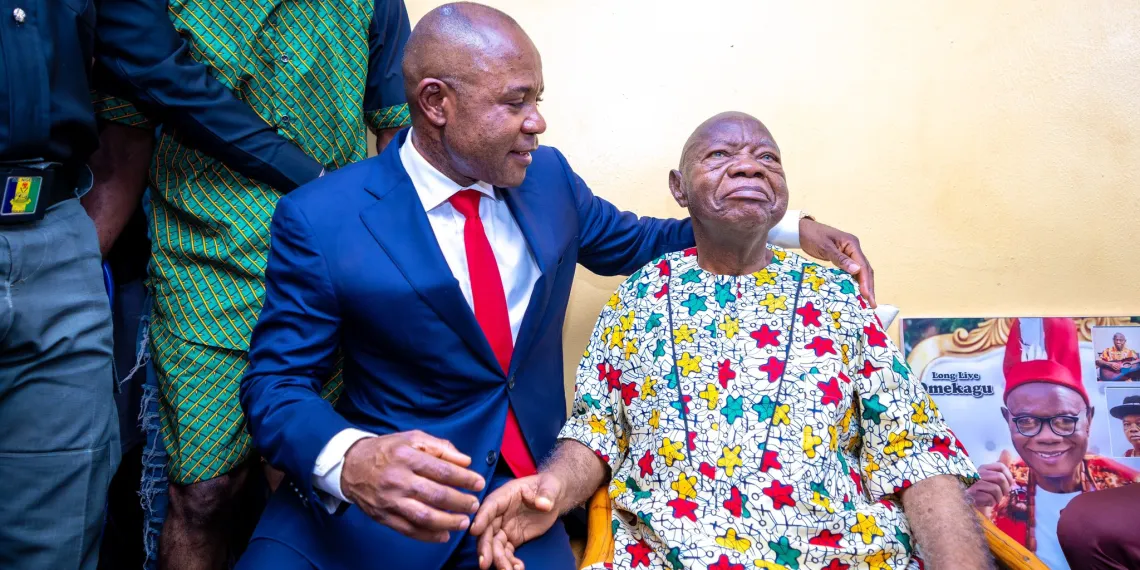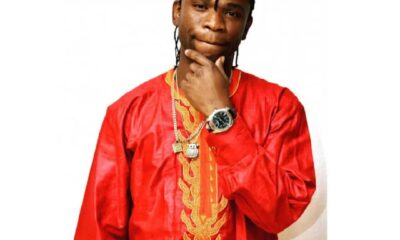Samsung Galaxy S25 series sets the standard of AI phones as a true AI companion
…Pioneering the multimodal era with the most context-aware and personalized mobile experience
Lagos, Nigeria – January 23, 2025 – Samsung Electronics Co., Ltd. has announced the Samsung Galaxy S25 series: Galaxy S25 Ultra, Galaxy S25+ and Galaxy S25, setting a new standard as a true AI companion with the most natural and context-aware mobile experiences ever created. Introducing multimodal AI agents, the Galaxy S25 series is the first step in Samsung’s vision to change the way users interact with their phone – and with their world.
A first-of-its-kind customized Snapdragon® 8 Elite Mobile Platform for Galaxy chipset delivers greater on-device processing power for Galaxy AI and superior camera range and control with Galaxy’s next-gen ProVisual Engine.

Galaxy S25 Ultra
With One UI 7, the Galaxy S25 series is a true AI companion that understands the context of your needs and preferences and provides personalized AI experiences with privacy assured at every turn.
It’s the starting point of a shared vision with Google to imagine Android with AI at the core, bringing together developers and partners from around the world.
AI agents with multimodal capabilities enable Galaxy S25 to interpret text, speech, images and videos for interactions that feel natural. Upgrades to Google’s Circle to Search make searching your phone screen more helpful, fast and contextual. Circle to Search now quickly recognizes phone numbers, email and URLs on your screen, letting you call, email or visit a website with a single tap.
With Galaxy S25 series, you can also perform actionable searches with context-aware suggestions for next steps. Plus, Galaxy S25 makes it frictionless to switch between apps for quick follow-up actions, like sharing a GIF or saving event details.
Galaxy S25 represents a breakthrough in natural language understanding, making everyday interactions easier. Simply ask and intuitively find a specific photo in Samsung Gallery or adjust the size of display fonts in Settings.
In the era of AI, personalization goes hand in hand with privacy. On the Galaxy S25, the Personal Data Engine powers personalized AI features by safely analyzing your data on-device to deliver highly tailored experiences that reflect your preferences and usage patterns.
These insights enable tailored experiences, such as using natural language to search for an old photo in the Gallery or being guided through the day with Now Brief, which proactively offers suggestions accessible via Now Bar on the lock screen. Knox Vault keeps all personalized data private and secure.
Combined with enhanced on-device processing capabilities, this creates a powerful, protected AI experience that is unique to Galaxy.

Galaxy S25+
Galaxy’s Most Powerful Performance Ever
The Galaxy S25 series is powered by the Snapdragon® 8 Elite for Galaxy. With unique customizations by Galaxy, this is the most powerful processor ever on the Galaxy S series. Further delivering a performance boost of 40% in NPU, 37% in CPU and 30% in GPU. This is compared to the previous generation.
This power fuels the Galaxy S25 series’ ability to process more AI experiences on-device without compromise, including previously cloud-based AI tasks such as Generative Edit.
10-bit HDR recording is now applied by default, offering four times richer color expression compared to 8-bit. Galaxy S25 can thus capture details in any lighting conditions. Plus, low-light videos have never been clearer than with Galaxy S25.
Based on powerful processor, Galaxy S25 analyzes movement and time to reduce noise more effectively. This integration allows detecting both moving and static objects with greater precision, ensuring sharper, cleaner footage in any scenario.
Galaxy S25 also introduces a range of tools once limited to specialized software, making advanced editing accessible for all. Now anyone can be a pro at editing photos and videos. Audio Eraser simplifies the removal of unwanted noise in videos. By isolating categories of sounds – including voices, music, wind, nature, crowd and noise – you can control what to tone down or eliminate entirely.

Galaxy S25 Series
Durable Design Embracing a More Circular Approach
The Galaxy S25 series builds upon Galaxy’s ‘Essential Design’ grounded in ‘Simple, Impactful and Emotive’ elements.
Galaxy S25 Ultra refines this essence into the slimmest, lightest and most durable Galaxy S series yet. This is with a rounded edge for a comfortable grip that complements the series’ aesthetic identity.
Galaxy S25 Ultra features durable titanium and the new Corning® Gorilla® Armor 2, a first-of-its-kind material that is more durable than glass. It combines Corning’s glass-ceramic with a proprietary anti-reflective surface treatment. This helps to ensure advanced drop protection alongside anti-reflection surface treatment and scratch resistance.
Combined with seven generations of OS upgrades and seven years of security updates, the Galaxy S25 series ensures a reliable and optimized performance over a longer lifespan.
For greater peace of mind, Samsung Care+ offers comprehensive coverage for accidental damage, repairs, and replacements, ensuring peace of mind for Galaxy users.
The Galaxy S25 series is available to order. Galaxy S25 Ultra will be available in Titanium Silverblue, Titanium Black, Titanium Whitesilver and Titanium Gray. Galaxy S25 and Galaxy S25+ will be available in Navy, Silver Shadow, Icyblue and Mint.
For more information about the Galaxy S25 series, please visit: Samsung Newsroom, SamsungMobilePress.com or Samsung.com.






































